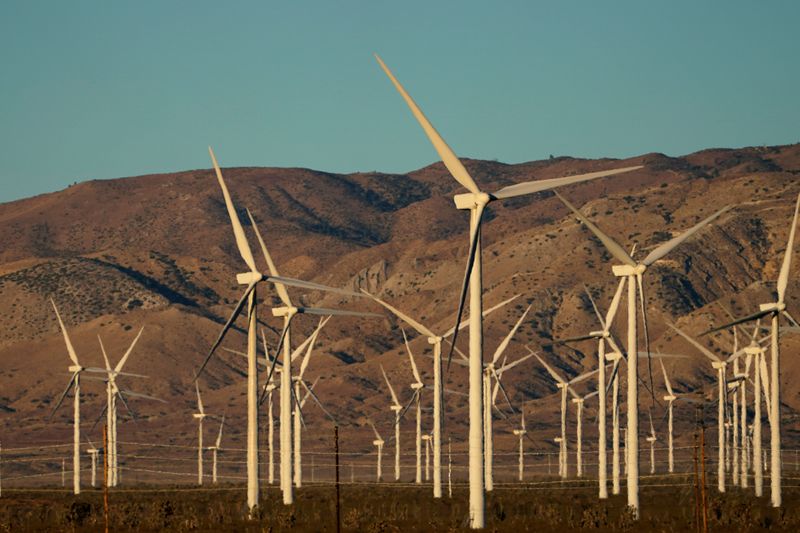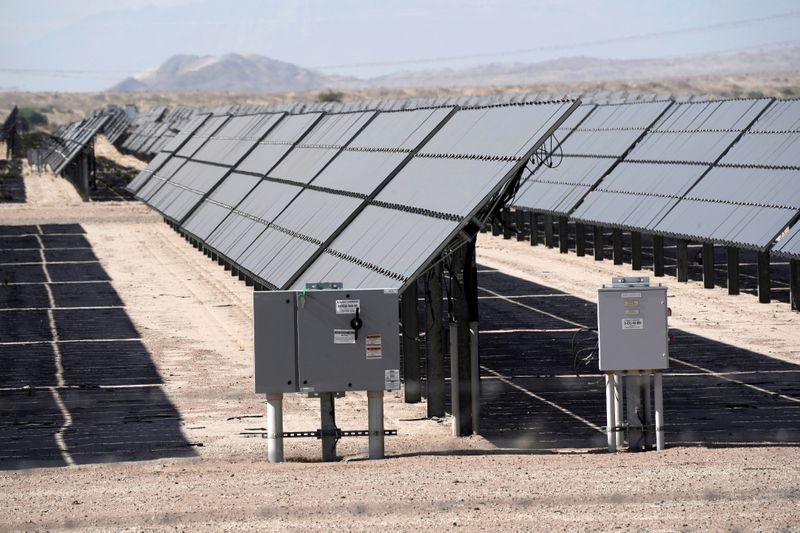By Valerie Volcovici
WASHINGTON (Reuters) - Americans are split along party lines over whether federal stimulus programs to boost the U.S. economy during the COVID-19 pandemic should prioritize clean energy businesses, according to a survey published by Reuters/Ipsos on Thursday.
The results reveal the tricky politics around energy and the environment as lawmakers debate whether the twin economic and health crises sweeping the globe are an opportunity to speed the transition from fossil fuels.
The poll shows 36% of Americans believe the U.S. Congress should prioritize clean-energy industries and businesses in the next stimulus package, including 53% of Democrats and 18% of Republicans.
Another 36% believe Congress should prioritize the most productive industries and businesses regardless of environmental impact, including 24% of Democrats and 57% of Republicans, according to the survey.
The Reuters/Ipsos poll was conducted online from June 22-23 in the United States, and includes responses from 1,115 adults.
Congressional and White House representatives are in talks on a new stimulus package to be taken up next month. The government passed an initial $2 trillion round in March.
Some 60 Democratic lawmakers recently called in a letter to colleagues for the new package to include measures "to spur growth in renewable energy, energy storage, energy efficiency, clean vehicles, clean and efficient infrastructure, clean fuels, and workforce development."
Republicans have pushed back arguing stimulus should address economic damage from the pandemic, not advance a clean energy transition.
Climate change is a central consideration in Europe's economic recovery after the pandemic. On Tuesday, Germany's environment minister announced the country will use its upcoming presidency of the European Union to steer the bloc toward a climate-friendly economic recovery.

Meanwhile, China is running the risk https://www.reuters.com/article/us-health-coronavirus-china-climate-anal/chinas-post-pandemic-economic-stimulus-puts-2020-climate-pledges-at-risk-idUSKBN22W0YW of slipping on commitments to reduce carbon emissions as it turns to heavy industry and carbon-intensive projects to shore up its coronavirus-stricken economy.
